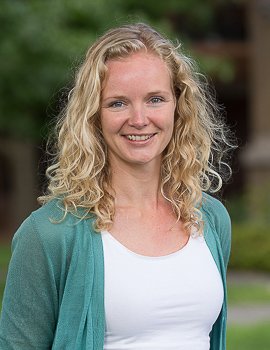Nina Overgaard Therkildsen is an Associate Professor in the Department of Natural Resources and Cornell University. Her research focuses on the genomic basis of adaptive divergence in marine fish and application of molecular methods in conservation and fisheries management. She holds a PhD from the Technical University of Denmark, an M.Sc. from the University of Copenhagen, and a B.A. from College of Atlantic.
Plenary talk title: Contemporary Evolution and Adaptive Divergence in Open Ocean Environments: New Insights and Applications to Fisheries Management.
Abstract: As anthropogenic pressures increasingly threaten the persistence of many species, we urgently need a better understanding of when and how organisms can adapt genetically to specific conditions experienced in their local environment, and how quickly they can respond when those conditions change. With great dispersal potential and few obvious barriers to gene flow in the oceans, it was traditionally believed that most marine species would show genetic homogeneity across broad spatial scales. We now, however, know many examples of pronounced fine-scale local adaptation in the oceans. I will talk about how the revolution in DNA sequencing methods that now enables cost-effective whole genome sequencing of any organism at a population scale has provided unprecedented opportunities for uncovering previously unknown levels of intra-specific divergence. I will share examples from our recent work examining a striking genomic basis for local adaptation along a steep latitudinal gradient in a small estuarine fish, the Atlantic silverside, and draw on our work in commercially important species, Atlantic cod and American shad, to illustrate how full genome-resolution in population genomic studies can provide previously overlooked insights relevant for fisheries management. To complement analysis of spatial patterns of variation, I will also share insights we have gained from analysis of time series samples to examine genomic underpinnings of rapid fisheries-induced evolution in both experimental and natural populations.
